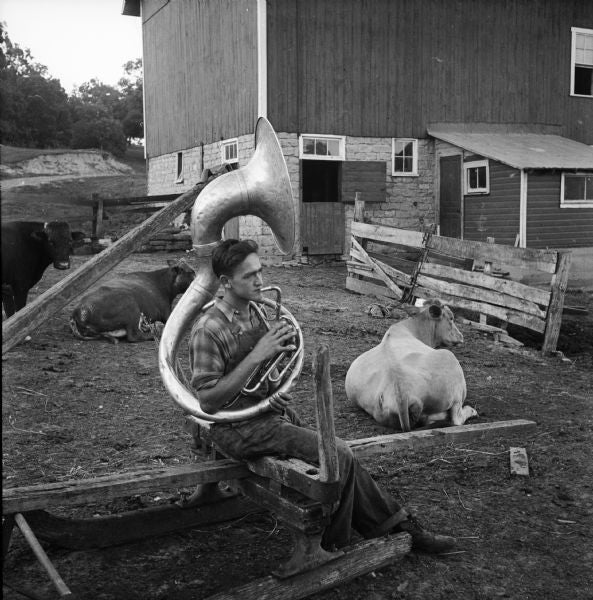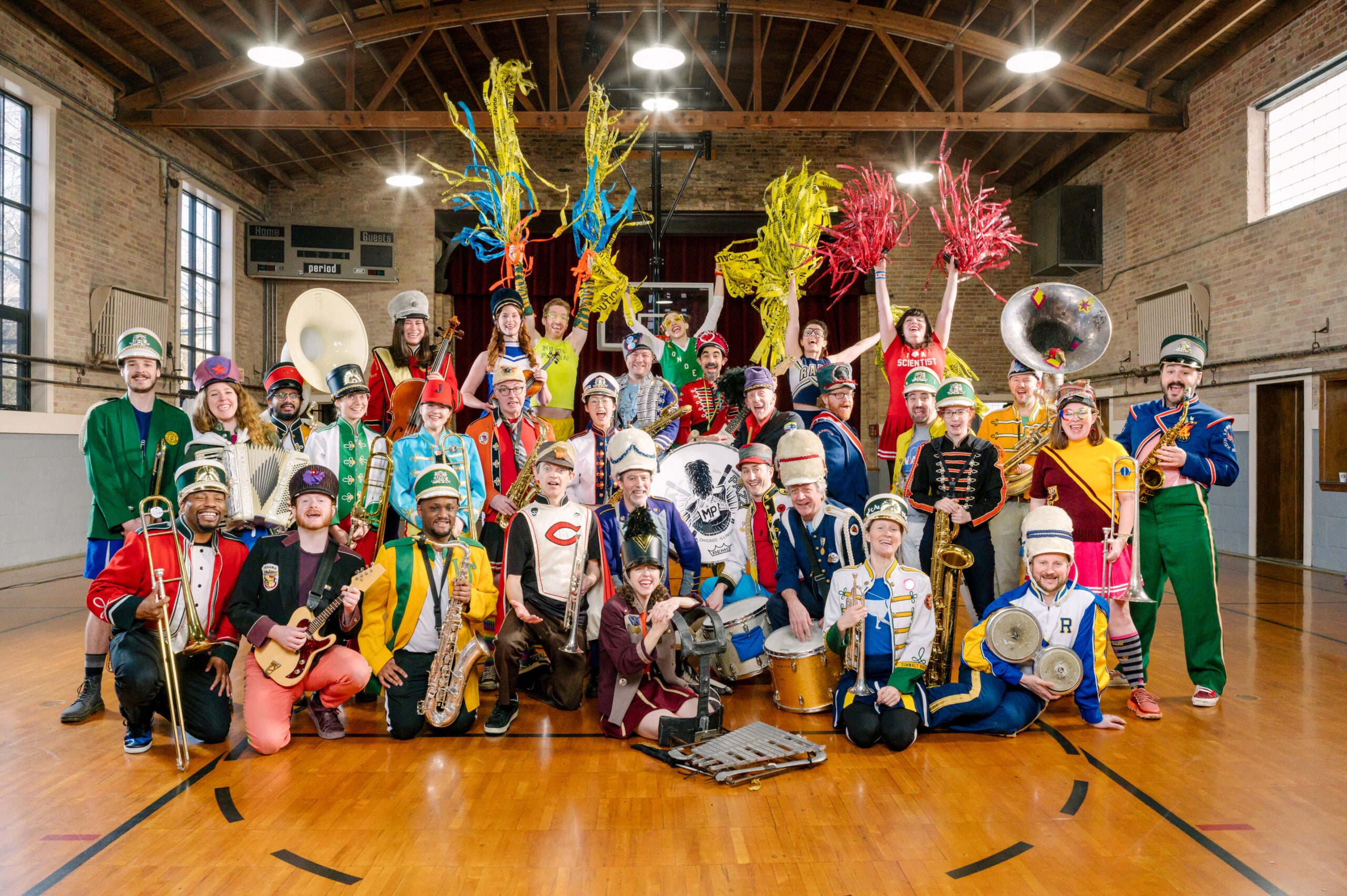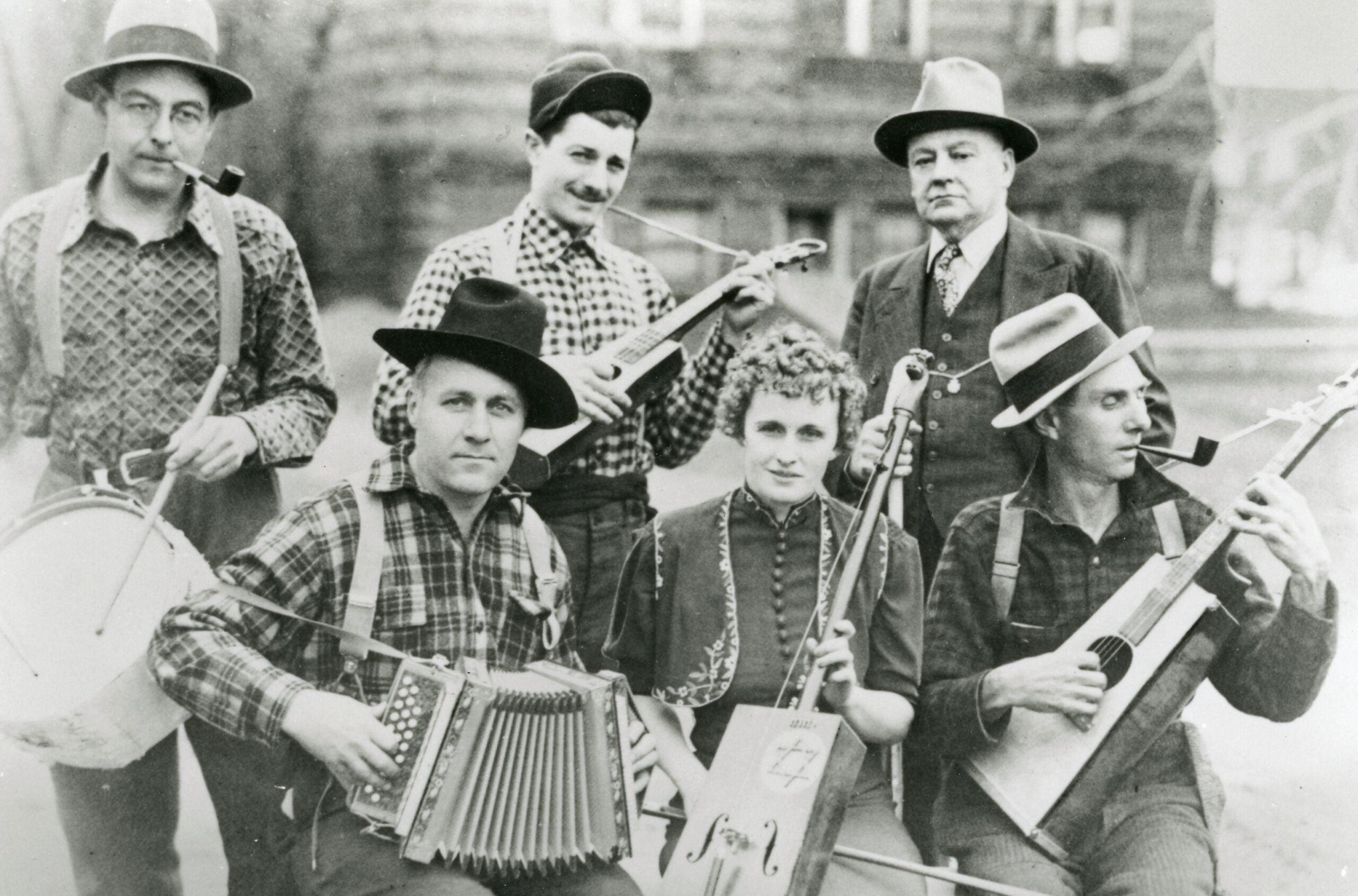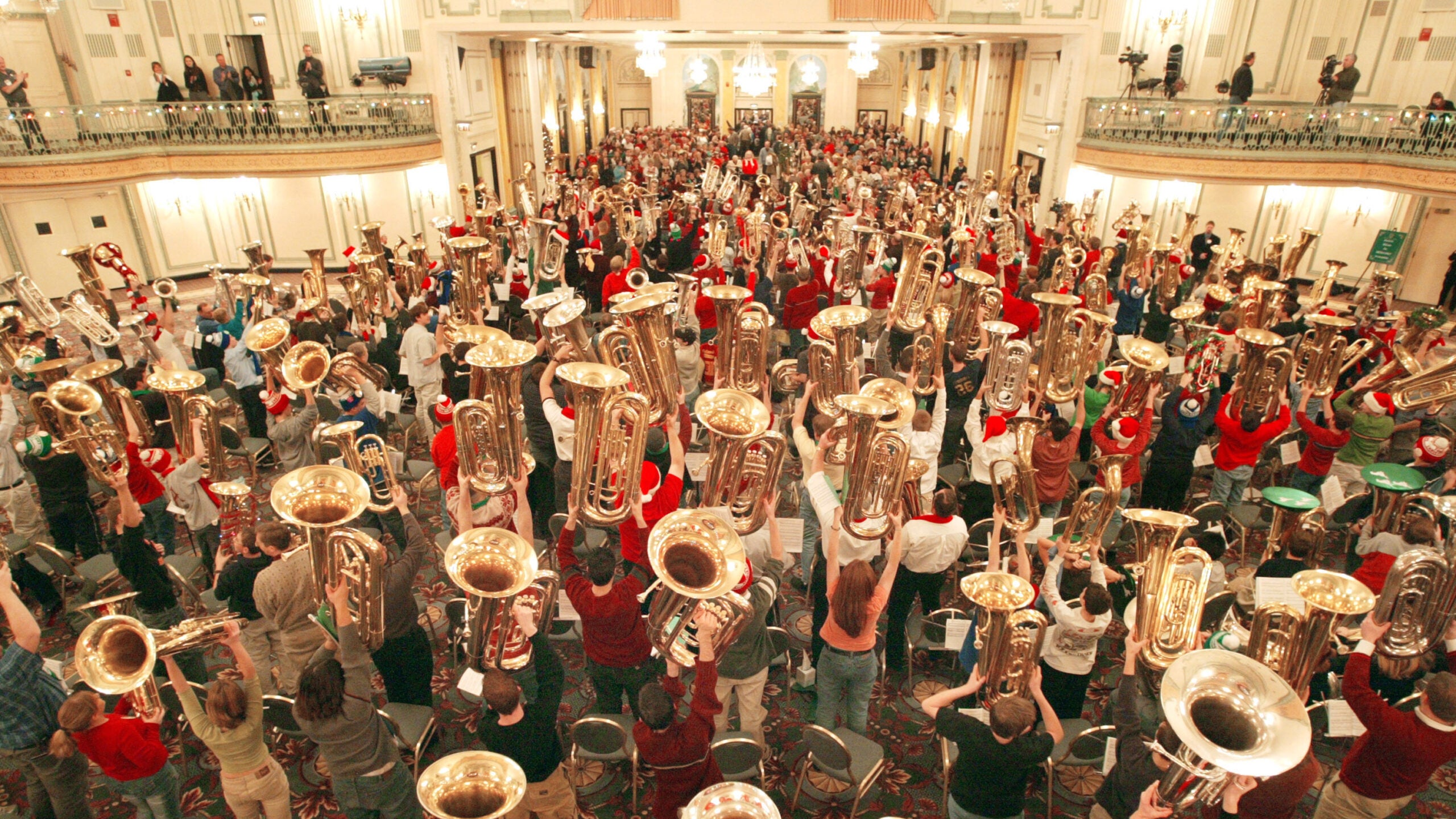The first Friday in May is International Tuba Day, a day to recognize those musicians who “go through the hassle of handling a tuba.”
Tubas have a long and sometimes contentious history in Wisconsin. The instrument came to Wisconsin with European immigrants in the 19th century. Most Polish, German, and Slavic communities had brass bands with tubas. Players could be found around the state, including in farm yards where the man in the above image practices to an audience of cows. At least one Wisconsin man played the tuba in the 3rd Wisconsin Infantry Band out of Brodhead during the Civil War.

Stay informed on the latest news
Sign up for WPR’s email newsletter.
Tubas play a prominent role in the University of Wisconsin-Madison Marching Band during football games. The tuba section began playing a musical interlude at the start of the fourth quarter at least as far back as the 1950s. Complaints that the band was distracting from the game in 1971 led athletic director Elroy Hirsch to ask the band to stop. Little did he realize that his actions would lead to enormous pro-tuba rallies, petitions, and even the formation of “The Friends of Tubas” to have the march restored. Hirsch reversed course and allowed the tubas to resume their parade in 1972.
The tuba nearly became Wisconsin’s state instrument. In 1984, state Sen.Carl Otte, who played tuba in a legislative swing band, proposed that the tuba became the state musical instrument. Otte’s proposal won the backing of the Tubists Universal Brotherhood Association (TUBA). Unfortunately, Otte’s bill didn’t make it out of committee and Wisconsin, despite lobbying by accordion enthusiasts, remains without a state instrument.
Every December, tubas fill the state capitol with music during the annual Tuba Christmas, one of many tuba holiday gatherings around the country.
Wisconsin Public Radio, © Copyright 2025, Board of Regents of the University of Wisconsin System and Wisconsin Educational Communications Board.






